Project's goal
The main goal of RO-CEO project is to establish the Romanian Cluster for Earth Observation, by mobilizing the most relevant capacities and expertise in the field, which are available in Romania now.
Do you operate state-of-the-art facilities? Do you have a team of experts in one or more fields of Earth Observation? Do you want to do business with ESA? Are you interested on developing your economic activities by making use of the huge potential of Earth Observation data and services? Join us now simply by registering to the RO-CEO portal.
The consortium behind this project invites all Romanian actors in the field of Earth Observation, to register to the RO-CEO portal and make themselves visible to the international community. Registered institution will be also invited to join the RO-CEO cluster as soon as the required framework will be in place.
Why do we need it
Romania has a long aerospace tradition and has contributed to more than 30 scientific and technological space missions. However, except for the initiatives coordinated by, and involving directly ROSA, most of the contracts with ESA are narrow-scope and targeted, addressing the very exclusive expertise of one or two Romanian institutions. As such, multi-disciplinary and large activities remain inaccessible to the Romanian players. Insufficient access to information about existing capacities and expertise, coupled with a lack of tradition in collaboration has a negative impact on the investments as well, many institutions building (with significant costs) similar infrastructures, instead of sharing resources. Also, the representation in ESA committees is at a very low level, because the community is still not consolidated and not organized.
A simple comparison in the European Cluster Observatory's web tool, for example, shows that in terms of clusters for Knowledge-intensive business services (Business services, Education and knowledge creation and IT), Romania's Regional Innovation Scoreboard is the lowest in Europe.
In order to be competitive, Romanian companies have to: (a) be aware of the opportunities and correctly evaluate their capacity; (b) understand how the business with ESA works, and prepare to fulfil the requirements; (c) find a particular field / niche / need where they can contribute; (d) prove their expertise and capacity, to be considered reliable by the Agency. A good way to achieve rapid transfer of expertise and good practices in doing business with ESA, is to organize a dedicated innovation cluster. The ongoing interaction between researchers, developers and users in an innovation cluster is highly dynamic, enabling cluster members to share data right away in order to identify opportunities for immediate changes.
Although a certain number of clusters exists in Romania, none is related to the specifics of Earth Observation. This, in the context of an increasing availability of EO data, and its huge potential use in various domains (from agriculture to energy, environmental protection, risk and hazards, urban planning, transport, etc.).
What we want to do
We want to setup the Romanian Cluster for Earth Observation.
Clusters are economic networks of firms, knowledge producing agents, bridging institutions and customers, linked to each other in a value-adding production chain. The focus is on the linkages and interdependence between actors in the network of production when producing products and services and creating innovations. Within each cluster, project teams made up of researchers, developers, and users co-design new strategies for addressing a specific unmet need, e.g. better use of EO data to address climate change effects (extreme weather, droughts, floods, landslides, air quality, etc.).
The main roles of the Romanian Cluster for Earth Observation would be:
- to promote (to ESA and other space-relevant organizations) the specific interests and relevant capacities at national level, and attract more investments and contracts for the Romanian institutions;
- to improve the provision of services to end-users by joining complementary skills and expertise;
- to ensure the sustainability of the EO sector in Romania by enabling EO market development.
We intend to build on existing capacities and achieve a critical mass of organizations joining the RO-CEO cluster and boosting the development of EO activities in Romania, as well as promoting the use of EO data in different sectors of the economy.
As such, before starting the clustering process, we need to:
- identify and valorize relevant competences and infrastructures able to contribute to ESA's Earth Observation missions (science feeders, hardware and software developers, service and data providers);
- improve the networking capacity, collaboration and joint initiatives of the Romanian players in Earth Observation;
- develop a coherent and practical agenda to foster and support inter and intra-sectorial cooperation in the field of Earth Observation.
Who we are
RO-CEO is concentrating 4 out of the 7 Space competence centres set-up in the frame of the STAR programme, all having expertise in Earth Observation, and brings additional expert organizations to cover all important aspects of the domain. This consortium acts as a nucleus to coagulate relevant capacities and achieve a critical mass of expertise and initiative, to support and further develop the EO capacities in Romania.
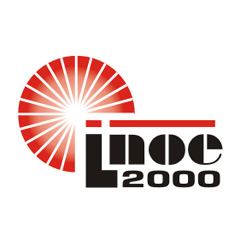
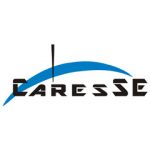
National Institute of R&D for Optoelectronics (INOE) through the Remote Sensing Department (http://environment.inoe.ro) has multidisciplinary expertise spanning from laboratory/in-situ chemical analysis to Earth Observation (EO) techniques and applications. It contributes to the joint European and global climatological database as part of international networks (EARLINET, AERONET, MWRNET, ACTRIS), coordinates the Romanian Atmospheric 3D research Observatory (RADO), leads the Romanian initiative for ACTRIS research infrastructure ACTRIS-RO, and embeds the Centre for Atmospheric REmote Sensing and Space Earth observation, CARESSE.
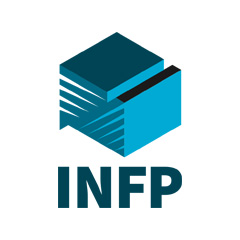
National Institute for Earth Physics (INFP) is responsible for the seismic, geophysics and geodetic monitoring of the Romanian territory (http://www.infp.ro/). It has a wide background in basic and applied research in geophysics and atmospheric sciences, with focus on seismic source and seismotectonics, seismic hazard and risk assessment, engineering seismology and earthquake prediction. INFP is now one of the 8 main nodes of EIDA (European Integrated Data Archive) that allows storage and exchange of seismic data between different significant European research infrastructures and is part of several european infrastructures, providing data for: MEMFIS, IOANE, INFREP, GNSS/GPS, EPOS.
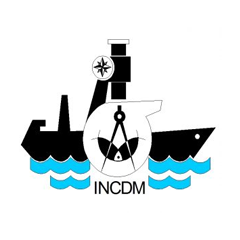
National Institute for Marine Research and Development "Grigore Antipa" (INCDM) addresses the domains of ground and applied research, with crucial role for understanding, protection and conservation of the marine and coastal environment, in the EEC zone of Romania (http://www.rmri.ro/Home/Home.html?lang=en). The COSMOMAR Centre, INCDM's Oceanography Department development, is a RS Competence Centre, having as main objective the development of a multidisciplinary remote sensing centre for the RS/marine & coastal surveillance as a main tool of ICZM implementation on the Romanian coastal zone.
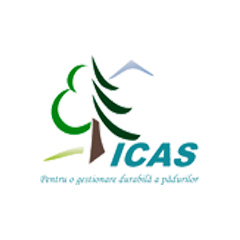
National Institute for Research and Development in Forestry "Marin Dra?cea" (INCDS) is licensed for forest management planning, ecological reconstruction and watershed management, forest risk assessment, forest cartography, geodesics and photogrammetry, seeds quality and conservation, pesticides testing on behalf of forest certifying purposes (http://www.icas.ro/). INCDS uses remote sensing data, mainly Landsat imagery, to study the forest vegetation, including automated image classification and to evidence ecosystems limits. Extended expertise related to the loss of forest vegetation due to windthrow or clearcutting, to the detection potential illegal logging into test area or to the forest management planning has been gained in the last years.

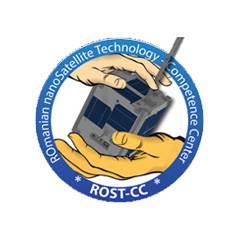
Institute of Space and Science (ISS) has been the leader of the Romanian research into the space sector carrying out fundamental and advanced scientific and engineering research in cosmic rays physics, high energy physics, astrophysics and the development of space technology and applications (http://www2.spacescience.ro/?lang=en). The experience of the institute throughout its history covers all the fields of research from pure theory to data acquisition, processing and interpretation and from the drawing board to complex instruments for both space based and terrestrial applications of space assets.
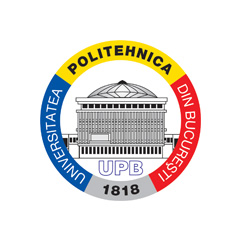
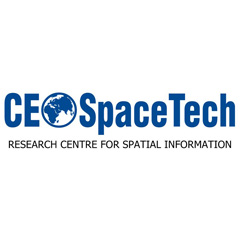
University Politechnica of Bucharest (UPB) through CeoSpaceTech, part of the Faculty of Electronics, Telecommunications and Information Technology (ETTI), is a research center that has, as areas of competence, sensors and new remote sensing systems (e.g. experimental sensors and new RADAR methods), remotely sensed data processing (SAR signals) and data analysis (http://ceospacetech.pub.ro/). The center is involved in several applications related to remote sensing, like Global Monitoring for Environment and Security (GMES), continental - oceanic - atmospheric - emergency and security - climate change, surveillance and reconnaissance.
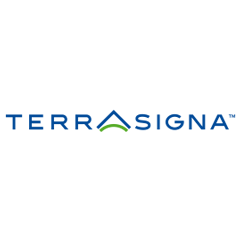
TERRASIGNA has expertise in developing big data technologies, as well as visual data mining software and a suitability search engine, being able to search the best satellite images in a data base, to cover, cloud free, the area of interest (http://www.terrasigna.com/). EO monitoring services and applications offered cover geographical areas from Romania and Europe to countries worldwide. Also, the company is part of different European associations that contribute to the European policies and strategies related to EO (e.g European Association of Remote Sensing Companies, Big Data Value Association).
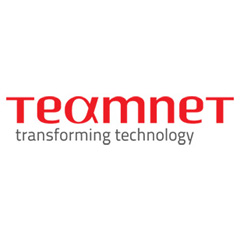
Teamnet (http://www.teamnet.ro/) is a leading system integrator in Romania and a growing player in the CEE and MENA regions, bridging that gap between business and technology. The company constantly invests in technologies such as GIS (Geographic Information Systems), Robotics systems, Earth Observation, SCADA (Supervisory Control and Data Acquisition solutions) and Cloud, aiming to generate a sustainable long-term evolution of our society.
With 15 years of activity, Teamnet has experienced an accelerated development in almost every aspect of its business. The Group has begun the regional expansion in 2010, relying on its strong expertise in Software, Systems Integration and Consulting, helping public and private organizations to increase their competitiveness in the CEE and MENA regions. Having offices in 7 countries, Teamnet Group gathers 800 experts with thousands of team certifications, covering various industries such as Emergency, Cadaster, Pensions, Labor, Consular Services or Agriculture.
Alongside International Finance Corporation - World Bank Group Member - and Black Sea Trade & Development Bank, Teamnet's strategic and financial partners, the Group plans to enhance the growth potential in international markets.
Teamnet is recognized as one of the fastest growing businesses in its field, being included in Deloitte's regional rankings.
